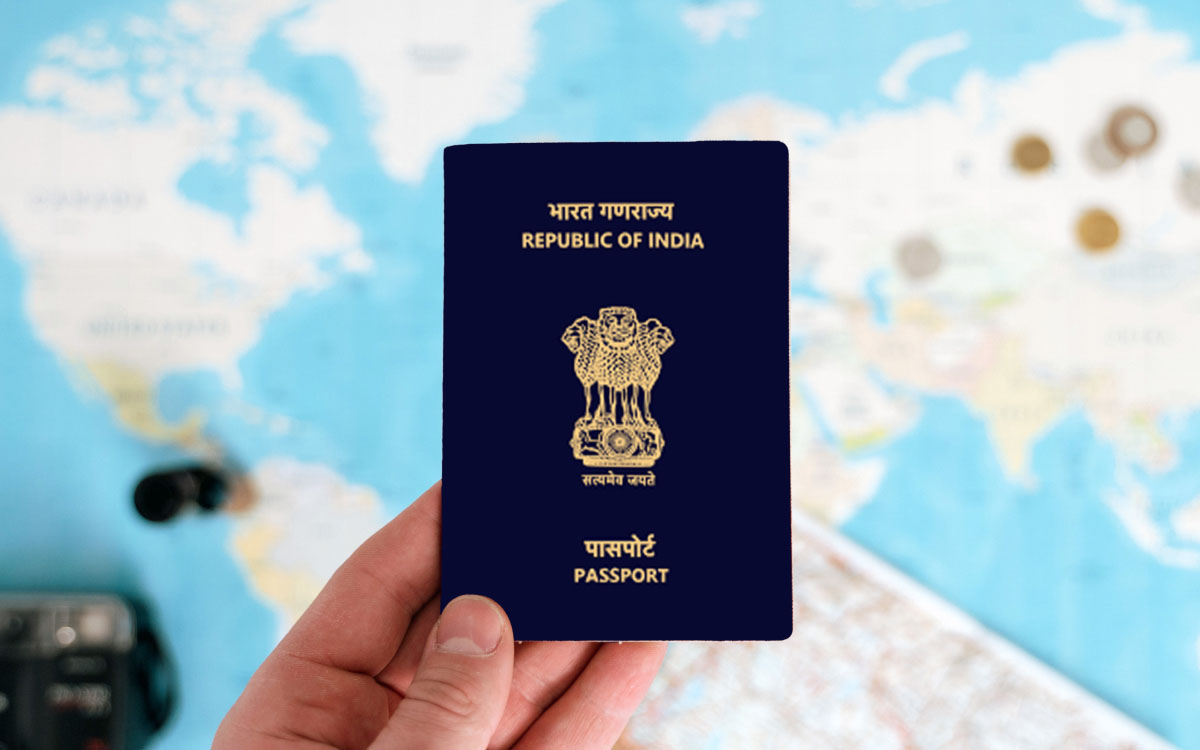Canada with offering world-class education, welcoming environment, and numerous opportunities for professional growth is a top destination for international students,. If you’re want to study in Canada, one of the key steps in obtaining your Study Permit visa is proving that you have enough money to cover living expenses, your tuitions, and other costs. Within this article we walk you through everything you need to know about the minimum bank balance requirement for a Canada student permit visa, and also with some tips for meeting the financial eligibility criteria and how to make the right documents be provided.
The Canada Student Study Permit Visa Process
Applying for a Canada a Study Permit as Canada student visa, is a crucial step for any international student in hope to pursue their educations in Canada. Anyhow along with your acceptance letter from a designated learning institution, providing proof of financial stability is one of the most important parts of your application.
The Canadian government asks you to prove that you have enough money to support yourself and pay for tuitions while studying in Canada. to ensures that you won’t face financial difficulties once you’re there. It is critical to understand the financial requirements early in the process is for a smooth visa application experience.
The Minimum Bank Balance Requirement for a Canada Student Visa
The amount of money you need to show in your bank account to prove that you can pay for your education and living costs is referred as minimum bank balance requirement for a Canada student visa.
The Canadian government needs to be sure you’re financially prepared to study and live in country without needs to rely on work or other means that might interfere with your studies. It is one of the main reasons visas are approved or denied so to show that you have the right amount of money is non-negotiable.
You’ll have to prove that you have enough money for:
- Tuitions fees for at least one year of study in Canada.
- Living expenses to support yourself (and any family members, if applicable).
The exact amount varies depending on factors like your tuition fees, where you’ll live, and whether you have or you don’t have any dependents (such as spouse or children).
Detailed Breakdown of the Financial Requirement
let’s break down the financial requirements for tuition and living expenses for better understanding of how much money you’ll need in your bank account.
Tuition Fees
Tuition fees vary greatly between different universities, colleges, and programs in Canada. In general, international students should have to budget in around 15,000 and 35,000 cad per year for tuition. However, these numbers depending on the school, program, and level of studies can be fluctuated.
Lower range: Some smaller universities or colleges may have programs with tuition fees as low as CAD 10,000 to CAD 15,000 annually.
Higher range: greater institutions, or specialized programs such as business, medicine or engineering, can charge tuition fees upwards of CAD 35,000 or even much more per year.
To plan your finances accurately you need to make sure that you know the exact tuition fees for your specific study program.
Living Expenses
aside tuition, you’ll need to show that you can cover your living costs. Guidelines for the minimum amount you should have available for living expenses, including accommodation, food, transportation, and other personal needs is provided by Canadian government. These amounts vary depending on whether you’re bringing family members with you.
The general guidelines for living expenses are as follows:
- 10,000 CAD per year for the student (excluding tuition).
- 4,000 CAD per year for the first dependent (like a spouse or child).
- 3,000 CAD per year for each additional dependent.
Example Scenario
Let’s say that you’re a student enrolled in a program with tuition fees of 20,000 CAD per year, and you don’t have any dependents. So you’ll need to show a minimum of 30,000 CAD in your bank account (20,000 for tuition + 10,000 for living expenses).
Now, if you’re bringing a spouse along, the amount will increases up to 34,000 CAD (20,000 CAD for tuition + 10,000 CAD for your living expenses + 4,000 CAD for your spouse’s living expenses).
Health Insurance and Travel Costs
Some provinces may require you to provide proof of additional funds to cover health insurance and travel costs. Health insurance might already be included in your tuition fees in addition to tuition and living expenses, but it’s essential to check the specific requirements of your province and institution.
Immigration officers may also want to see that you have enough money to cover travel expenses, such as the cost of a return flight to your home country, though this isn’t always a strict requirement.
Acceptable Proof of Funds for a Canada Student Visa
When applying for your Canada student visa, you’ll need to present proof of funds that clearly shows you have access to enough money to cover your tuition and living expenses. The funds must be liquid and accessible, meaning they can’t be tied up in property or non-cash investments. Below are the most common forms of proof you can provide.
Bank Account Statements
One of the most straightforward ways to prove you have enough funds is by submitting bank account statements. Immigration officials will usually request statements from the past 4–6 months to ensure the money has been consistently available and isn’t just a one-time deposit.
Make sure the statements are clear and easy to read, showing both the total balance and any large deposits or withdrawals. Consistency is key, so avoid sudden large deposits that might raise concerns unless you can clearly explain their origin (like selling an asset or receiving a loan).
Loan Approval Letters or Bank Loan Statements
If you’re financing your education with a student loan, providing loan approval letters or bank loan statements can serve as proof of funds. Make sure the loan covers at least your first year of tuition and living expenses, as immigration officers will only consider approved and accessible funds.
Scholarship or Financial Support Letters
For students receiving financial aid, official scholarship letters or financial support documents are essential. These letters should clearly state the amount of financial assistance you’ll receive and whether it’s meant to cover tuition, living expenses, or both. If your scholarship covers only part of your expenses, you’ll need to provide proof of additional funds to cover the rest.
Guaranteed Investment Certificate (GIC)
For students applying under the Student Direct Stream (SDS), a Guaranteed Investment Certificate (GIC) is required. The GIC must be at least CAD 10,000 and be held with a participating Canadian financial institution. This is meant to cover your first year of living expenses.
Proof of Tuition and Housing Payments
If you’ve already paid your tuition or housing fees, submit receipts or payment confirmations to prove that these costs are already covered. This can reduce the amount of money you need to show in your bank account.
The Student Direct Stream (SDS) – A Faster Option for Certain Countries
The Student Direct Stream (SDS) is a fast-tracked application process available to students from certain countries, including India, China, the Philippines, Vietnam, and Pakistan. The SDS program offers visa processing times of around 20 days, but it comes with specific financial requirements.
Financial Requirements for SDS
Guaranteed Investment Certificate (GIC) of CAD 10,000: This is non-negotiable. You’ll need to purchase a GIC from a participating Canadian bank as part of your proof of funds.
Proof of payment for the first year of tuition: You must show that you’ve already paid your tuition fees for the first year of study.
While the GIC covers your living expenses for the first year, you’ll still need to demonstrate that you have sufficient funds for tuition and other potential costs.
How the Minimum Bank Balance is Assessed by Immigration Officers?
Immigration officers carefully scrutinize the financial documents you submit to ensure you have sufficient funds for your studies. Here’s what they look for:
Liquid and Accessible Funds
The money you show must be in liquid form, meaning it should be easily accessible and not tied up in assets like real estate or investments. Funds in savings or checking accounts are ideal. If you’re using a student loan, make sure the loan is approved and that you can show proof of the total amount you’re borrowing.
Stability Over Time
Immigration officers prefer to see a stable account balance over several months, rather than a sudden large deposit just before applying. A sudden increase in funds can raise red flags unless there’s a valid reason, such as a loan disbursement or the sale of an asset.
Sponsorships
If a family member or sponsor is helping you financially, you’ll need to provide a sponsorship letter explaining their commitment to supporting you. Along with this letter, your sponsor’s financial documents (like bank statements or pay stubs) will also be required to show that they have enough money to cover your expenses.
Factors That Influence the Minimum Required Bank Balance
Several factors can affect how much money you need to show for your Canada student visa. These include where you plan to study, the type of program you’re enrolling in, and whether you’re bringing family members with you.
Province of Study
The cost of living varies widely across Canada. Cities like Toronto and Vancouver have higher living costs than cities in provinces like Manitoba or Newfoundland and Labrador. When calculating your financial requirements, take into account how much it costs to live in the province where you plan to study.
For instance, if you’re studying in Toronto, you might need more than the basic CAD 10,000 for living expenses, as rent and other costs are generally higher. On the other hand, if you’re studying in a smaller city or town, your cost of living might be lower, meaning you won’t need as much.
Rural Areas vs. cities
Living in a large city like Montreal or Calgary is usually more expensive than living in rural areas. Urban centers tend to have higher housing, food, and transportation costs, while rural or less populated areas often offer more affordable living. Be sure to factor this into your budget planning.
Course Length and Type
Certain degree programs, such as medicine, dentistry, or business administration, tend to have higher tuition fees than standard undergraduate programs. As a result, you’ll need to show a larger bank balance to cover these costs. Additionally, professional degrees or master’s programs might come with higher costs for textbooks, lab fees, and other materials.
Number of Dependents
If you’re bringing family members with you, your financial requirements will increase significantly. For each dependent (spouse or child), you’ll need to show additional funds to cover their living expenses, as outlined earlier.
What Happens If You Don’t Meet the Financial Requirements?
Unfortunately, failing to meet the financial requirements for your Canada student visa can lead to serious consequences.
Application Denial
If the minimum financial requirement isn’t met, there’s a high chance your visa application will be refused. Canadian immigration authorities take the financial aspect of your application very seriously because they want to be sure you can cover your expenses without needing to rely on work or social assistance.
Reapplication Options
If your visa is denied due to insufficient proof of funds, you can always reapply. However, you’ll need to make significant improvements to your financial documentation. This could mean saving more money, securing a scholarship, or applying for a student loan to show that you have adequate funds.
Financial Strategies for Success
If you’re worried about meeting the financial requirements, consider the following strategies:
- Apply for scholarships: Many Canadian institutions and third-party organizations offer scholarships to international students. Scholarships can dramatically reduce your financial burden.
- Get an education loan: Many students rely on loans to cover tuition and living expenses. Make sure your loan is approved and provides enough money to cover your first year in Canada.
- Consider studying in a lower-cost province: If you’re concerned about the high cost of living in cities like Toronto or Vancouver, consider studying in a province with lower expenses, such as Nova Scotia, Manitoba, or Saskatchewan. This will reduce the amount of money you need to show for living costs.
- Plan your budget carefully: When calculating your total financial requirement, be thorough. Include all potential costs, such as textbooks, health insurance, and transportation, to avoid any surprises.
Additional Tips for Providing Proof of Funds
Providing the right documentation is crucial when proving your financial ability. Here are some tips to help ensure your proof of funds meets Canadian immigration standards:
Provide Recent Bank Statements
Make sure your bank statements are recent and cover the last 4–6 months. The statements should clearly show that you have enough money in your account to cover both tuition and living expenses.
Affidavit of Financial Support
If you’re being financially supported by a family member or sponsor, you’ll need to provide an affidavit of financial support. This document should clearly state the sponsor’s relationship to you, their commitment to covering your expenses, and their financial ability to do so. Be sure to include their bank statements and any other relevant financial documents.
Include Student Loan Documentation
If you’re relying on a student loan to cover your costs, ensure that the loan is fully approved and that the amount is sufficient to cover the first year of tuition and living expenses. Submit all necessary loan documents with your application.
Check Institution-Specific Requirements
Some educational institutions may require you to pay a portion of your tuition upfront or provide proof that you’ve secured housing before your arrival. Be sure to check your school’s specific requirements and provide any additional documents as needed.
Conclusion: Ensuring Financial Preparedness for Your Canada Student Visa
Financial preparation is a crucial part of successfully applying for a Canada student visa. By understanding the minimum bank balance requirement and providing the right proof of funds, you significantly improve your chances of visa approval.
To recap:
- Ensure you have enough money to cover at least one year of tuition and living expenses.
- Provide clear and thorough proof of funds, such as bank statements, loan approval letters, or scholarship documents.
- Plan your budget carefully and consider all expenses, including tuition, accommodation, food, insurance, and transportation.
- If needed, consult with an immigration expert or education consultant to help you navigate the financial requirements.
By being financially prepared and organized, you can increase your chances of receiving your study permit and embark on your educational journey in Canada with confidence.











